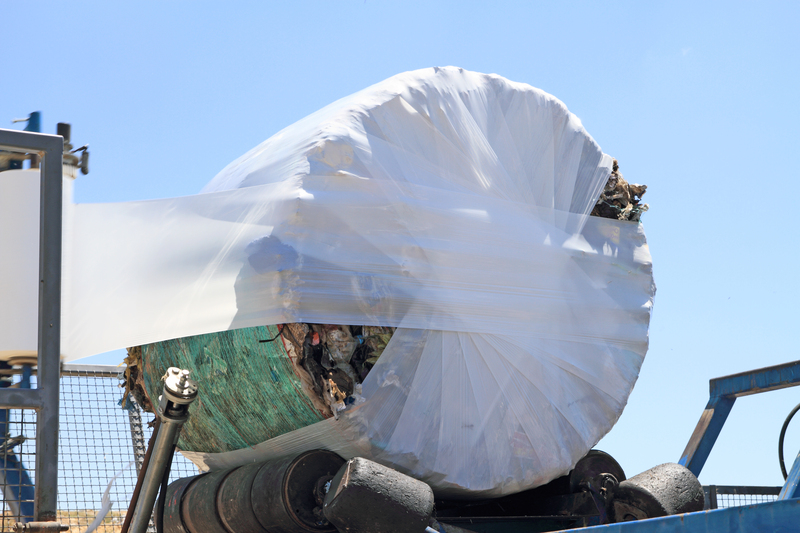UK Rubbish Removal: How It Operates
Posted on 26/10/2025
UK Rubbish Removal: How It Operates
When it comes to maintaining cleanliness and ensuring a healthy environment, rubbish removal plays a critical role. The United Kingdom has a well-structured system for waste management and disposal that involves a range of services, regulations, and approaches. This comprehensive guide explores how rubbish removal operates in the UK, highlighting its pros and cons, offering useful tips, and summing up key takeaways.
The Role of Local Authorities
In the UK, local authorities are chiefly responsible for waste collection and management. Each jurisdiction has its own set of rules and schedules for rubbish removal, which are designed to meet national and EU waste management regulations. Local councils typically offer various bins for different types of waste, such as general waste, recyclables, and organic matter.

Types of Rubbish Removal Services
Curbside Collection: This is the most common method where residents place their waste bins at the curbside for periodic collection by municipal or private contractors.
Skip Hire: For larger clean-up tasks, individuals and businesses can hire a skip. The skip is delivered to the site and picked up for disposal when full.
Specialist Services: Some types of waste, such as toxic materials or bulky items, require specialized removal services. These services are particularly useful for businesses dealing with hazardous waste.
Recycling and Sustainability
Recycling plays a crucial role in the UK's waste management system. Local authorities provide separate bins for paper, glass, metals, and organic waste, promoting high recycling rates. Composting organic waste is also encouraged, as it reduces landfill pressure and promotes sustainability.
Regulations and Compliance
The UK's waste management operations are governed by stringent regulations aimed at reducing landfill use and promoting recycling. Failure to comply with these regulations can result in hefty fines. Both local authorities and private companies must adhere to these laws, ensuring waste is sorted, treated, and disposed of responsibly.
Technology in Rubbish Removal
Modern technology aids the efficiency of rubbish removal operations. GPS tracking is used to optimize collection routes, and sensors can inform authorities when public bins are full. These advancements not only streamline operations but also minimize the environmental impact.
Cost Implications
The cost of rubbish removal can vary depending on the type of service and the amount of waste. Local authorities generally provide basic services funded by taxation, while specialized services like skip hire or hazardous waste removal are privately funded and can be more expensive.
Tips for Effective Rubbish Removal
- Separate waste into designated bins as per your local council's guidelines.
- Reduce waste by opting for reusable products and avoiding single-use items.
- Properly dispose of hazardous materials through specialized services.
- Consider composting organic waste to minimize landfill pressure.
- Stay informed about your local council's collection schedule and guidelines.
Pros and Cons of UK Rubbish Removal
Pros:
- Efficient and regular rubbish collection helps maintain public health and cleanliness.
- Recycling initiatives significantly reduce waste sent to landfills.
- Strict regulations ensure responsible waste management.
- Advanced technology provides operational efficiency and environmental benefits.
Cons:
- Cost can be a concern, especially for specialized or private services.
- Compliance with numerous regulations can be cumbersome for businesses.
- Public bins can sometimes overflow if collection schedules aren't optimized.

Key Takeaways
The UK's rubbish removal system is multifaceted, involving local authorities, private services, and stringent regulations. Efficient waste management practices help ensure public health and environmental sustainability. However, costs and regulatory compliance can pose challenges.
Conclusion
In conclusion, the rubbish removal system in the UK is highly organized and regulated, offering multiple services to ensure efficient waste management. By understanding the roles of various stakeholders, the different types of services available, and the importance of compliance, residents and businesses can contribute to a cleaner and healthier environment. Embracing effective waste reduction practices and staying informed about local guidelines can further enhance the efficiency of rubbish removal processes.
By following these tips and recognizing the pros and cons, individuals and businesses can effectively manage their waste, contributing to a sustainable future.
Latest Posts
UK Rubbish Removal: How It Operates
Creative Ideas for Reusing Wrapping Paper










